#Angelo Litrico
Text
Fausto Sarli
Maestro italiano dell'haute couture: Fausto Sarli
#faustosarli #hautecouture #fashion #design #moda #sarlicouture #roccopalermo #weddingdress #cratoredistile #creatoredimoda #storiadelllamoda #perfettamentechic
Fausto Sarli è stato uno stilista d’alta moda italiano. “Scultore dell’alta moda“, uno degli stilisti più creativi dell’haute couture italiana, ma anche uno dei creatori di moda più schivi e riservati. Gli atelier Sarli si trovano a Roma, Milano, Napoli.
Sarli nasce a Napoli, il 9 maggio del 1927, dove cresce a contatto con stoffe e tessuti presso l’Atelier materno ed eredita, sin da bambino…
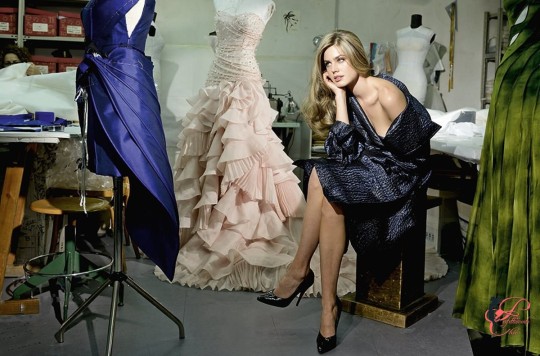
View On WordPress
#50s#Abiti da sera#Agente Logan#Agrigento#Alta moda#Alta Moda Italiana#Angelo Litrico#Antonio De Luca#Arezzo#Atelier#Atelier di Alta Moda#Balmain#Boutique#brand#Cairo#Calgaro#Canada#Capri#Carla Bruni#Carla Fracci#Carol Alt#Carol Beker#Casanova#Castel dell&039;Ovo#CEICA#Centro mediterraneo della moda e dell&039;artigianato#Centro romano dell&039;Alta Moda#Chimera#Christian Dior#Città di Milano
2 notes
·
View notes
Text



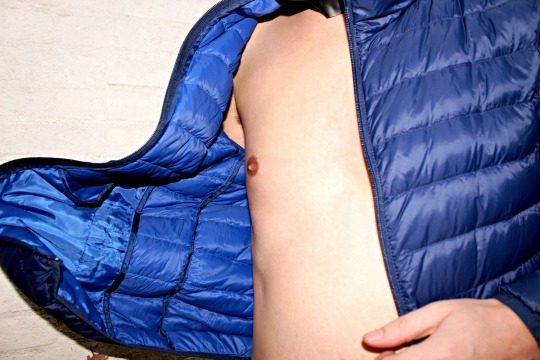
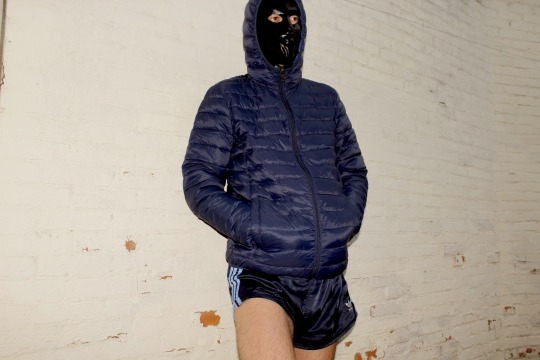





24. Just a simple off the rack puffer. Nothing fancy, cheap, but it gets the job done.
Brand: Angelo Litrico
Type:
Colour: blue
Period: 2010's
sharesome.com/ShinyShorts24/ (NSFW)
#shiny jacket#puffer jacket#shiny puffer#shiny shorts#glanzshorts#nylon shorts#adidas shorts#vintage shorts#satin
8 notes
·
View notes
Text


80's Angelo Litrico graffiti-print viscose s/s Shirt
淡い色味の中に夏っぽい雰囲気を感じる半袖シャツ。シンプルなパンツとうまく合わせて楽しんでいただけます。
0 notes
Text
Angelo Litrico
https://www.divatmarkak.hu/marka/angelo-litrico/
Angelo Litrico
(adsbygoogle = window.adsbygoogle || []).push(); (adsbygoogle = window.adsbygoogle || []).push();
0 notes
Text
Portraits Without Frames by Lev Ozerov
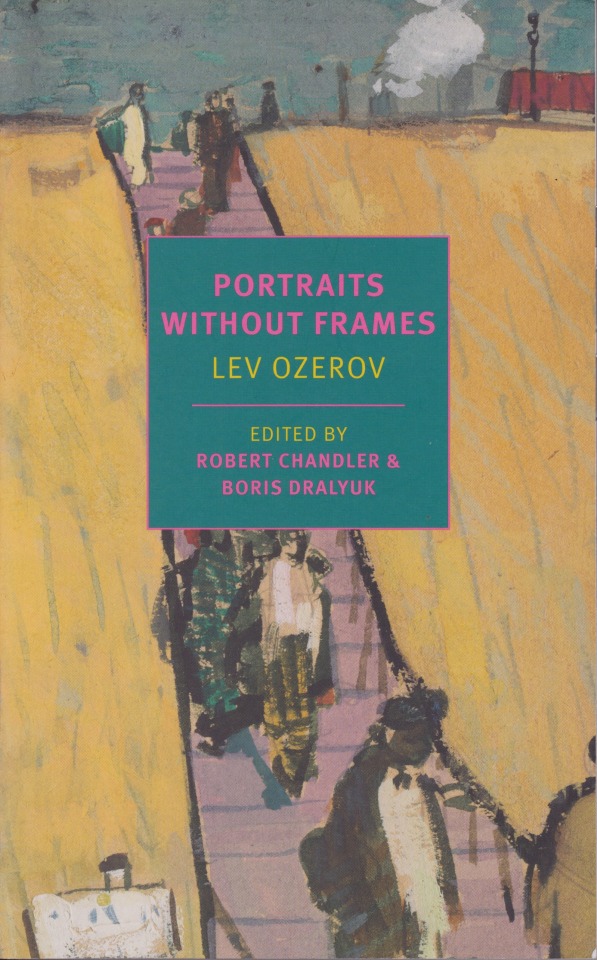
VARLAM TIKHONOVICH SHALAMOV
Forward and to one side,
like a knight on a chessboard,
with a knapsack on his back,
Varlam Shalamov plods on,
battered by Kolyma.
Lonely, almost sullen,
he has the air of a sad
Russian peasant, or scholar, or writer
whom life has stung hard,
whom life has pressed down on
but not yet utterly crushed.
Deep in his soul
there is still strength,
still
the will
to fight fate.
His wrinkled face is a hieroglyph
of all he has lived through
and does not speak about.
It’s a cold day.
We go into a café.
Not much to eat there,
but at least it’s warm.
“Varlam Tikhonovich,
read me some new poems.”
He turns one ear towards me.
Without a word he takes off
his rough, wind-battered knapsack.
Inside it, a wooden spoon
hobnobs with crusts of bread,
notebooks,
and documents—
death, after all,
can creep up on you
any moment.
He reads slowly,
separating each word:
each word
ready to drop into the abyss.
Getting the words
out is easier
with pauses for breath.
“Thank you,” I say.
“No, it’s for me
to thank you. Who
nowadays asks anyone
to read poems?” he says
hoarsely, with feeling.
“I’ve got an awful lot
of them. How
am I to choose?”
He reads at random
jumping from page to page,
whatever catches his eye.
Reading aloud, he warms up.
“All right. Enough of that.”
Someone brings coffee,
sausages, bread.
Steam rises from our cups;
steam rises from our plates:
the renowned fragrance
of a Moscow
people’s café.
Shalamov tries not to eat
too quickly, not to show
that he is very hungry.
I don’t ask about Kolyma,
and he doesn’t mention it:
as if it hadn’t happened.
As he eats the bread,
he holds one hand
just below his chin.
Crumbs fall
into his palm.
Shalamov eats them greedily,
with particular relish.
His long experience
of malnutrition
is apparent.
This mouth accustomed to hunger
opens slowly, mistrustfully,
almost unwillingly, as if in shame.
Shalamov eats in silence,
with tried and tested
deliberateness,
with meaning, with pauses,
and to me he seems
not to be thinking
about food.
What is Shalamov
thinking about?
How am I to know?
He returns his notebook
to his knapsack.
Out we both go
into the winter outside
“It’s a cold day,” I say.
“What do you mean?” he says.
“It’s warm.”
***
MIKHAIL ZOSHCHENKO (excerpt)
How does it start—
the mad day, the made life
of a writer? What whim,
what overwhelming force
presses a pen into some poor fellow’s hand
and leads him down
through all of Dante’s
twisting circles?
***
PERETZ MARKISH
Once you’d seen him,
you could say
you’d seen Byron:
honor, dignity, stature,
a melancholy beauty.
He’d raise his head
and, with half-closed eyes,
recite his poems
as if he were singing.
He wrote his own Childe Harold,
his own Don Juan, his own
Beppo. His sin, his one
and only sin:
that he wrote in Yiddish.
He could express
himself only in Yiddish.
He could express
himself only in Yiddish.
For this, he was jailed.
For this alone, executed.
Everyone knew, but
it wasn’t done
to say it
out loud, to spell
it out in black and white.
It was said and written: He died.
Just went and died.
Just went and died, you see.
Why get people upset?
In the province we call Volhynia
lies a village we call Polonne.
That’s his childhood,
that’s his grandfather Shimshon-Ber,
that’s his cheder. And after that,
he was chorister, tutor, day laborer,
worker at the vineyards,
army private, and office clerk.
But he didn’t like calculating,
he liked the immeasurable;
on the flip side of banking documents
poems began to appear.
This dreamer’s distant gaze
was focused not on the faces
of clients but on the Galaxy. Later,
he said in passing,
“While you clutch a grass-blade,
I hold up the Earth,
the planet vast and blue.
Immensity is what attracts me,
but your grass-blade is a part of it too.”
We didn’t see each other for a long time.
Then I saw him
on a canvas by Alexander Labas.
There, there he is—
Markish, who was built
for a long life, imagining
his last hour. There is a touch
of sunset in the dawn blaze.
The light melts into a dark
that allows no return.
His widow is making inquiries about her husband,
about his notebooks and manuscripts,
confiscated when he was arrested.
His widow walks down the long corridors
of the seventh floor—
corridors her soul
had walked long before.
She had endured much:
a waiting room, a small window
where relatives could hand in parcels
of food and clothes for a prisoner.
But now she is here by invitation.
Courteous and charming,
General Borisoglebsky addresses her:
“You can probably guess
why I’ve called you here.”
“No. Tell me.” “I am able
to inform you that your husband
has been rehabilitated.”
“Where is he?” The general’s reply
is ready and waiting, planed
and polished: “He was executed
by enemies of the people.”
And he offers Markish’s
widow a glass of water,
also ready and waiting.
“I want to read his case file.”
“But you are not a lawyer.”
“Where is my husband’s grave?”
“He has none. . .”
More time passed.
Another telephone call:
“This is the KGB,
finance department. It seems
we owe you a little money.”
“What do you mean?
You’ve already returned me the money
I tried to send to my husband
but which he never received.”
Pause. An in-breath. An out-breath.
“We owe you for the teeth.”
“What teeth?” “The gold crowns.”
In a voice not her own,
the widow
let out a wild scream.
Neighbors ran out into the hallway
and caught her,
as she collapsed in a faint.
She was pale now and silent.
While the telephone receiver
on its twisted cord
groped the wall,
swinging like a pendulum,
counting off
our godforsaken time.
***
ARAM ILYICH KHACHATURIAN
Free time for whims is what makes age alluring;
the aging Khachaturian grew to like touring:
Rome—Paris—London—Berlin.
He conducted, shook hands,
represented the state,
gave many an interview,
enjoyed his fame through and through.
Glory, after all is glorious;
he lapped up bravos;
the glitter of concert halls
held him in thrall.
Glad of each chance
to further his own fame,
he paid his respects
to the pope and von Karajan,
Stravinsky and Britten,
the Dalai Lama, the Queen.
He was photographed with them,
or rather—they with him.
Some photos were like ads, others
more personal. Best of all
were the snapshots
of handshakes: hands
coupled, heads bent forward.
In his Moscow apartment,
with its sliding doors,
he treated guests to Armenian wine,
Mutakh cheese, a few grapes,
and these photos—
expecting rapt
exclamations.
His albums, his apartment walls
were adorned with every
major celebrity.
The only one missing
was Salvador Dalí.
He must visit Dalí!
Must see Dalí!
Must be photographed with Dalí!
Otherwise
both the collection
and his own fame
would be incomplete.
Dalí gave his consent.
A date was set
for a meeting
in a remote castle,
At the time agreed,
Khachaturian and his assistant,
his assistant’s assistant, and his photographer,
a friend and this friend’s daughter—
a budding artist—
approached the castle.
A truly ancient castle!
But in order to enter it
you had to cross
a wide swath of swampland.
No other way:
no footbridges,
no guards to assist them.
Mud splattered their dress
shoes and best clothing;
dispirited and exhausted,
they crossed the swamp.
The gates clanged open;
they entered the empty vastness
of the ancient castle,
akin to a planetarium or crematorium.
The silence continued.
The guests stood in a stupor.
This was insane!
Suddenly, in all its wild frenzy,
the “Sabre Dance” was unleashed.
It was like bolts of lightning!
Crossed sabres rang out
struck each other,
recoiled, parted,
flashed again,
clanged again.
It was spectacular!
The music’s proud composer
managed a smile: this was,
after all, in his honor.
He was distracted,
however, by the sight
of his Angelo Litrico shoes,
gleaming new only the day before
but now encrusted with mud.
The “Sabre Dance” drew to an end.
After a meaningful pause,
Salvador Dalí himself appeared,
riding a dark horse,
dressed like Don Quixote,
carrying a spear, of course,
but without Sancho Panza.
He rode three victory laps,
respectfully stopping
beside his shivering guests.
Through half-closed eyes
he looked down at everyone
with benevolent condescension:
a look full
of meaning.
Then, thrice brandishing his spear,
he withdrew so abruptly that
the photographer
was unable to recollect
what he was meant
to be doing there.
A prerecorded message
boomed a polite “Arrivederci”;
the lights went out,
the wayfarers exited.
“Ouch!” groaned the photographer.
“Argh!” growled the assistant.
Khachaturian stayed silent.
Once again they trudged
through the surrounding mud,
but I said enough about that
as I described their approach
to the castle
of the ingenious Salvador.
It is said that this episode
cooled the composer’s ardor:
he went less often on tour
to dodgy venues.
1 note
·
View note
Photo

26th October 1957: Italian fashion designer Angelo Litrico is photographed cutting fabric for a jacket for Nikita Khrushchev. Khrushchev held the title of General Secretary of the Central Committee of the Communist Party of the Soviet Union from 1953 until 1964.
The designer, born the eldest of twelve children in Sicily in 1927, found international fame dressing political figures on both sides of the Cold War standoff.
#vintage#1950s#black and white#soviet union#italian fashion#20th century#angelo litrco#nikita krushchev#communism#Italian history#1957
2 notes
·
View notes
Photo

Vintage 90's Grey Angelo Litrico 1/4 Zip Fleece Sweatshirt
https://www.ragkid.com/products/vintage-90s-grey-angelo-litrico-1-4-zip-fleece-sweatshirt-xl
#vintagefleece#vintageclothing#90sclothing#vintagestreetwear#streetwear#90sstreetwear#stussy#vintagestussy
0 notes
Text
13 marzo … ricordiamo …
13 marzo … ricordiamo …
#semprevivineiricordi #nomidaricordare #personaggiimportanti #perfettamentechic
2022: William Hurt, attore statunitense. Sposò l’attrice Mary Beth Hurt divorziando l’anno successivo. Ebbe una relazione con Sandra Jennings, con la quale ebbe un figlio e con l’attrice Marlee Matlin. Si risposò con Heidi Henderson che gli diede due figli. Ebbe un’altra figlia dall’attrice Sandrine Bonnaire. (n. 1950)
2021: Giovanni Gastel, è stato un fotografo italiano. Lavora per numerose…

View On WordPress
#13 marzo#Angelo Litrico#Claudio Gora#George Melville Cooper#Giovanni Gastel#He Pingping#Henriette Margarethe Hiebel#Howard st. john#La Jana#Lena Ashwell#Lena Margaret Pocock#Marvin Hagler#Marvin Nathaniel Hagler#Melville Cooper#Morti 13 marzo#Morti oggi#Paulo Afonso Miessa#Paulo Goulart#Raoul Casadei#Ricordiamo#Roberto Murolo#Stacey Harris#Stacy Harris#Stacy S. Harris#Stefano Vanzina#Steno#Stilista#William Hurt
0 notes
Photo
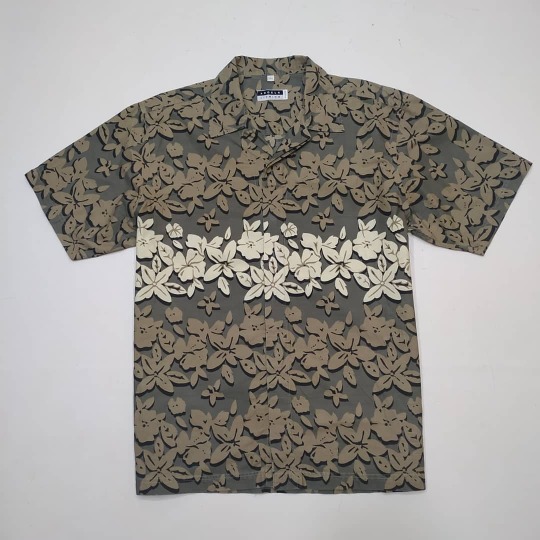
ANGELO LITRICO 🏝 Size tag XL Panjang Badan 74 cm Lebar Badan 62 cm Kondisi like New VGC✨ Minus - No minus Harga 110k⤵ . Deal Order⤵ Whatsapp : 0852-6845-7567 Line : @vjk8435j (use @) 🔺Atau klik Link Di BIO🔺 . Cek Stock #TBBMSTOCK . Ready hanya 1jenis 1ukuran LIMITED Di Jamin 💯% Original (Jaminan Jika Fake Uang Kembali) . . Bisa Order lewat Market Place kita ⤵ Tokopedia : Toko Baju Batam Metro Shopee : Toko Baju Batam Metro . ✨Happy shoping ✨ . __________________________________ #hawaiianshirt #hawaiianmurah #jualhawaiianbekas #jualhawaiianshirt #jualhawaiian #jualhawaiianmurah #jualhawaiiansecond #jualhawaiianbekas #bajupantai #bajuxxlmurah #jualkemejapantai #jualkemejaabstract #jualkemejavintage #indocasuals #jualkemejafloral #jualkemejafloralmurah #jualuniqlomurah #seputarkotametro #sekitarkotametro #prelovedyogyakarta #prelovedmetro #prelovedsurabaya #jualkemejavintage #fashionvintage #fashion90s #fashion80s #fashionhijab #fashionblogger https://www.instagram.com/p/CH78gbGAm8V/?igshid=vb38ubwc0oix
#tbbmstock#hawaiianshirt#hawaiianmurah#jualhawaiianbekas#jualhawaiianshirt#jualhawaiian#jualhawaiianmurah#jualhawaiiansecond#bajupantai#bajuxxlmurah#jualkemejapantai#jualkemejaabstract#jualkemejavintage#indocasuals#jualkemejafloral#jualkemejafloralmurah#jualuniqlomurah#seputarkotametro#sekitarkotametro#prelovedyogyakarta#prelovedmetro#prelovedsurabaya#fashionvintage#fashion90s#fashion80s#fashionhijab#fashionblogger
0 notes
Text
0 notes
Photo

!@#&*^^ Angelo Litrico Black Sweater Jacket W/ Elbow Patch XL Men's https://ift.tt/2ECVWUW
0 notes
Photo

Angelo Litrico Duck Camo Jogger Pants 30-34×26 เหมาะสำหรับคนสูงไม่เกิน 174 ซม กางเกงเอวจั๊มมัดเชือก พิมพ์ลายพรางล่าเป็ด ผ้าหนานุ่ม ขาจั๊ม สภาพใหม่เหมือนออกช็อป แค่ลองใส่วัดขนาดครั้งเดียว สีสด ไม่มีตำหนิใดๆ เอวขยายได้ 30-34 นิ้ว ปลายขา จั๊ม 5-6.5 นิ้ว ต้นขา 11.5 เป้า 12 ขาในยาว 26 ยาวรวม 38 นิ้ว 640 รวมส่ง EMS #chiangmaisecondhand #tuckzchiangmaisecondhand #camopants #camojogger #duckcamo #duckcamopants #กางเกงวอร์มมือสอง #กางเกงวอร์ม #กางเกงลายพราง #กางเกงjogger #กางเกงjoggerpants #joggerpants #jogger #joggers https://www.instagram.com/p/COIR9iInwBg/?igshid=16ivk3li1ra3y
#chiangmaisecondhand#tuckzchiangmaisecondhand#camopants#camojogger#duckcamo#duckcamopants#กางเกงวอร์มมือสอง#กางเกงวอร์ม#กางเกงลายพราง#กางเกงjogger#กางเกงjoggerpants#joggerpants#jogger#joggers
0 notes
Text
13 marzo … ricordiamo …
13 marzo … ricordiamo …
#semprevivineiricordi #nomidaricordare #personaggiimportanti #perfettamentechic
2021: Giovanni Gastel, è stato un fotografo italiano. Lavora per numerose riviste di moda, tra cui: Vogue, Elle e Vanity Fair, collaborando anche con marchi di fama mondiale come Dior, Trussardi, Krizia, Tod’s e Versace, e non solo. (n. 1955)
2021: Raoul Casadei, è stato un musicista e compositore italiano, famoso per il contributo alla diffusione del ballo liscio. (n. 1937)
2021: Marvin Hagler,…

View On WordPress
#13 marzo#Angelo Litrico#Claudio Gora#George Melville Cooper#Giovanni Gastel#He Pingping#Henriette Margarethe Hiebel#Howard st. john#La Jana#Lena Ashwell#Lena Margaret Pocock#Marvin Hagler#Marvin Nathaniel Hagler#Melville Cooper#Morti 13 marzo#Morti oggi#Raoul Casadei#Ricordiamo#Roberto Murolo#Stacey Harris#Stacy Harris#Stacy S. Harris#Stefano Vanzina#Steno#Stilista
0 notes
Photo

ANGELO LITRICO STRAIGHT LEG Jeans Blau W32 L32 **NEU** https://ift.tt/2Bjux8y
0 notes
Photo

^!^ ANGELO LITRICO GRAY COTTON PATCHED MESH POLO SHIRT SIZE XL A54-22 https://ift.tt/3frc9tC
0 notes
Photo

Looking aheads from this times with an eye to its #roots, #SartoriaLitrico would inspire your dream for the future by its historical archives rich of beauty, declared in 2009 by italian Ministry of Fine Arts and Culture of national important interest, close to the milestone of its 70 years history. Founded in Rome in 1951 by Master Tailor Angelo Litrico, Sartoria Litrico swiftly become worldwide sinonimous of the top expression of the tailor made italian fashion. #BespokeLegends #LuxuryIsThePleasureOfChoice https://www.instagram.com/p/B_Af-2tl-7x/?igshid=13j0bw7fub5a9
0 notes